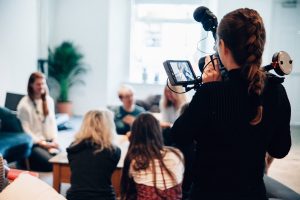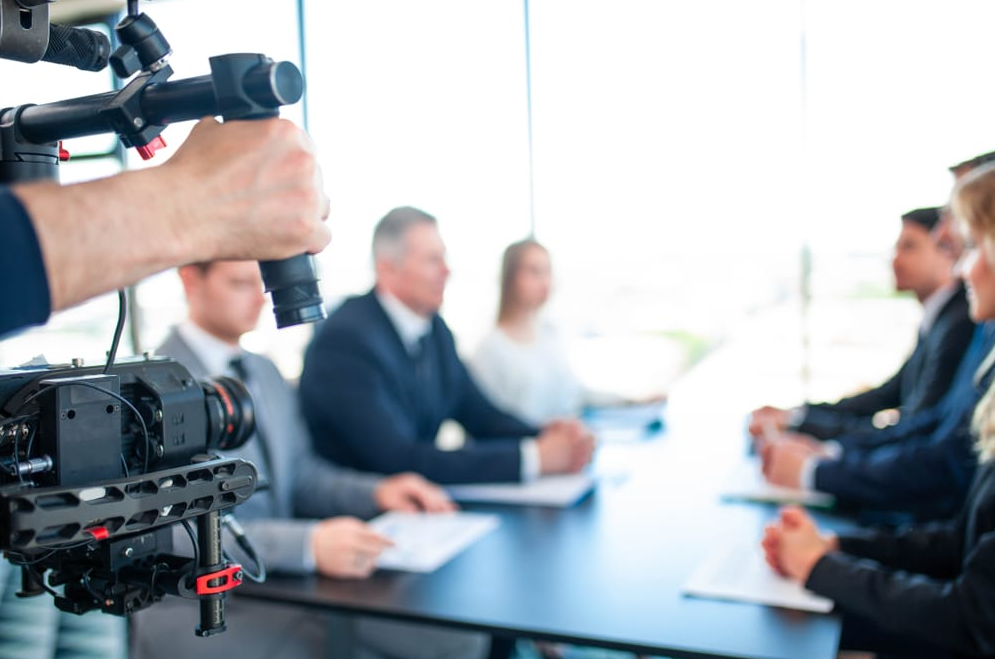The Role of Lawful Videography in Depositions and Trials
Lawful videography has arised as an important tool in both depositions and trials, offering a diverse strategy to documenting witness testimonies. As lawful specialists significantly recognize its worth, it motivates a deeper assessment of how these visual records can affect juror understandings and trial results.

Value of Lawful Videography
Lawful videography plays a crucial function in the documents and discussion of depositions and trials. This customized field incorporates technological abilities with legal understanding to develop a trusted document of procedures that can substantially affect instance results. The appearance of lawful videography boosts the understanding of witness testimony, enabling jurors and courts to observe not only the talked words however likewise the disposition, emotions, and body language of the witnesses.
On top of that, lawful videography offers an unbiased account of events, decreasing the potential for false impression that can accompany created records alone. This visual documents works as a vital device throughout test presentations, promoting a clearer and more persuasive narrative for both complainants and offenders. In addition, the capability to replay video segments during court proceedings allows legal groups to emphasize vital points, reinforcing their debates properly.
The relevance of lawful videography expands past the court room; it also plays a vital duty in protecting evidence for future referral, whether for charms or more legal action. Its combination into the legal procedure is essential for ensuring a fair and accurate representation of the realities, inevitably contributing to the quest of justice.

Process of Legal Videography
While capturing the subtleties of depositions and trials, the procedure of lawful videography includes a number of critical steps that make certain premium, accurate recordings. Originally, a specialist legal videographer prepares by evaluating the situation materials and recognizing the details needs of the deposition or test. This prep work consists of familiarizing themselves with the individuals and the context, which assists in recording essential details.
On the day of the recording, the videographer establishes the needed devices, which commonly includes high-def cams, microphones, and appropriate illumination. Making sure optimal angles and audio high quality is crucial, as it straight affects the efficiency of the recording. The videographer connects with lawyers and individuals to develop protocols, making certain that every person understands the recording procedure.
Throughout the deposition or test, the videographer meticulously videotapes the procedures, paying very close attention to both spoken and non-verbal signs. This includes recording the disposition and reactions of witnesses and attorneys. After the session wraps up, the videographer may modify the footage for clarity and compliance with lawful criteria, creating a final item that properly mirrors the proceedings for future reference and use in legal contexts.
Benefits in Depositions
The unification of videography in depositions offers countless benefits that boost the total process of collecting evidence. One primary benefit is the capability to record witness statements with aesthetic and acoustic fidelity, supplying a much more precise depiction of the witness's temperament, tone, and body language. This multidimensional strategy allows lawyers and courts to assess trustworthiness more properly than conventional written records alone.
In addition, videographed depositions serve as an effective device for maintaining testimony. Ought to a witness come to be unavailable for trial, their tape-recorded deposition can be played in court, guaranteeing that their evidence continues to be easily accessible and pertinent. This aspect substantially reduces the threat of shedding critical info that could influence instance results.

Finally, videography boosts the total professionalism of the deposition procedure, instilling self-confidence in clients relating to the thoroughness of their lawful representation (legal videography). By leveraging modern technology, lawyers can substantially visit this site enhance the performance of depositions
Effect On Trials
In many trials, the combination of videography can dramatically influence the presentation of proof and the court's assumption. Legal videography catches witness testaments and critical proof in a vibrant layout, enabling jurors to involve with the product on numerous degrees. This visual element boosts the narration facet of a more helpful hints test, offering context and psychological resonance that traditional text-based evidence might lack.
In addition, video recordings can act as effective devices for impeachment during interrogation. When inconsistencies emerge in between a witness's prior statements and their courtroom testimony, video proof supplies an objective reference that can sway jurors' opinions. This immediacy and quality can reinforce the credibility of a party's narrative while simultaneously threatening opposing disagreements.

Future Trends in Legal Videography
As we look towards the future of legal videography, a number of emerging fads assure to reshape its role within the courtroom. One substantial trend is the integration of expert system (AI) in video clip evaluation and editing and enhancing. AI can simplify the process of determining vital moments in taped depositions, allowing lawyers to swiftly access relevant content, therefore enhancing effectiveness in situation preparation.
Additionally, the surge of online fact (VIRTUAL REALITY) and increased reality (AR) technologies is anticipated to change how jurors experience evidence. legal videography. By submersing jurors in a substitute setting, these modern technologies can give a more profound understanding of complex situations, leading to even more enlightened deliberations
Additionally, the enhancing need for remote depositions, accelerated by the COVID-19 pandemic, will likely proceed. Lawful videographers will certainly need to adjust to brand-new software application and platforms to ensure top quality recordings in virtual setups.
Last but not least, the growing emphasis on information safety and security will certainly demand more stringent protocols for keeping and sharing video evidence. As the legal landscape develops, legal videographers must remain abreast of these patterns to preserve their importance and efficiency in the judicial procedure.
Conclusion
In summary, lawful videography serves a crucial feature in the judicial process, enhancing the honesty of depositions and tests. As innovation proceeds to progress, lawful videography is positioned to further transform its role within the legal landscape.